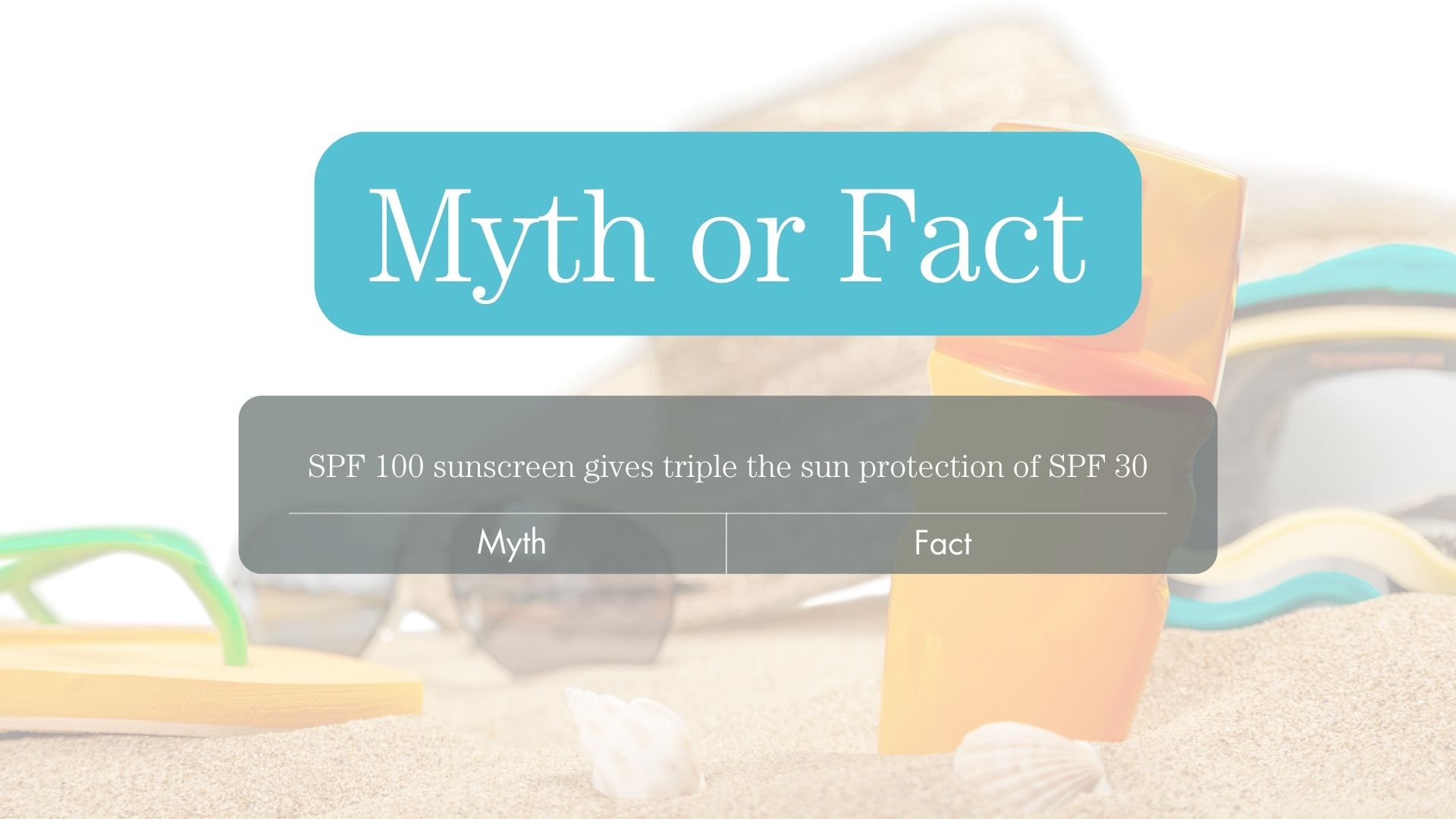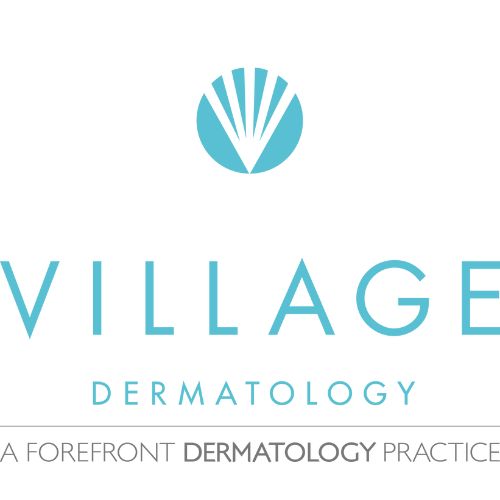Don’t be foolish…wear your sunscreen!
Families across the U.S. are looking forward to spending more time outdoors as warmer weather approaches. One of the things to stock up on for the summer is sunscreen. Yet, many people are hesitant to use sunscreen because of some common myths.
In this post, we’re going to debunk the Top 5 common sunscreen myths. If you’ve been lazy about applying sunscreen or think you don’t need it at all, check out these facts and myths before you head outdoors.

Myth 1: People with darker skin tones don’t need sunscreen
People with darker skin tones don’t sunburn as easily as fairer skin tones. This can put them under a false impression that they don’t need to wear sunscreen. The truth is that your skin color cannot protect you from sun damage. It’s just harder to see the sun damage on dark skin. This is because skin cells release pigment in response to damaging U.V. rays – what we call sunburn – and the subtle pigment changes are simply less visible in darker skin tones.
Our board-certified dermatologists recommend that people of all skin tones should wear broad-spectrum SPF 30 or higher sunscreen every day.
Myth 2: All sunscreen products are messy
Protecting your skin doesn’t have to be messy. The great news is that there are a lot of products on the market that are cosmetically elegant and you can wear them as part of your normal daily routine. Today, there are many different types of sunscreens available that provide aesthetically minded individuals with the protection and elegance they need for daily use. For a more exhaustive list of these products, check out our blog entitled, “5 Best Sunscreens for Every Skin Type.”
Myth 3: You don’t need to reapply waterproof sunscreen
No sunscreen or sunblock is waterproof. It can’t be because then how would you wash it off? If you look at the label on your sunscreen carefully, you’ll notice it says “water-resistant” and not “waterproof.” This means it holds up better when exposed to sweat and water but ultimately washes off.
So, if you’re in water or sweating, you should reapply your sunscreen every hour. If you’re staying dry, you can reapply sunscreen every two hours. Remember that being around snow, sand, or water increases the need for sunscreen because they reflect the sun’s rays.
Myth 4: SPF 100 sunscreen gives triple the sun protection of SPF 30
No matter what the SPF number on your sunscreen label, it only works for a specific amount of time (generally two hours). The SPF number indicates how much protection you get and not for how long. SPF 15 blocks 93% of UVB rays, SPF 30 blocks 97%, SPF 50 blocks 98%, and SPF 100 blocks 99% of UVB rays. No sunscreen blocks 100% of the sun’s rays.
As you can see, there’s only a minor difference between SPF 30 and higher SPFs. Experts recommend that everyone wear SPF 30 or higher sunscreen and reapply it every two hours.
Myth 5: You don’t need to wear sunscreen indoors or on cloudy days
Window glass blocks UVB rays that cause sunburn but not UVA rays that cause skin aging and cancer. So, if your desk is near a window or you’re riding in a car, you can still have enough sun exposure to cause damage. Also, you should know that the sun emits harmful U.V. rays even on cloudy days.
We advise using sun protection while riding in cars, trains, buses, airplanes, etc., even on cloudy days.
Tips on buying the best sunscreen
Here are some things to look for when choosing a sunscreen:
- Broad-spectrum (protects against UVA and UVB rays)
- SPF 30 or higher (blocks at least 97% of the sun’s rays)
- Water-resistant (protects in water for 40-80 minutes) when actively sweating or around water.
Tips on using sunscreen
Most people apply less than half the recommended amount of sunscreen. To fully protect your skin, you should:
- Use enough sunscreen on all sun-exposed areas, including your face, ears, neck, arms, hands, legs, and feet. Use a lip balm with SPF to protect your lips.
- Apply sunscreen 15-20 minutes before going outdoors.
- Reapply sunscreen every 2 hours when dry and every hour when in water or sweating.
Sunscreens Myths Conclusion
We hope these helpful tips and clarification help you stay protected as we all look forward to getting out in the beautiful sunshine this spring! As always, we are available to assist you in our Skin for Life Boutique, or you may call us at 205.877.9773.
Other Articles You May Enjoy
5 Ways to Protect Your Skin this Spring Break
5 Best Sunscreens for Every Skin Type
What Does the “DEJ” in Revision DEJ Products Mean?
How Oxidative Damage from Free Radicals Affects the Skin
The Skin Benefits of Vitamin C
Skin Care for Rosacea and Sensitive Skin

